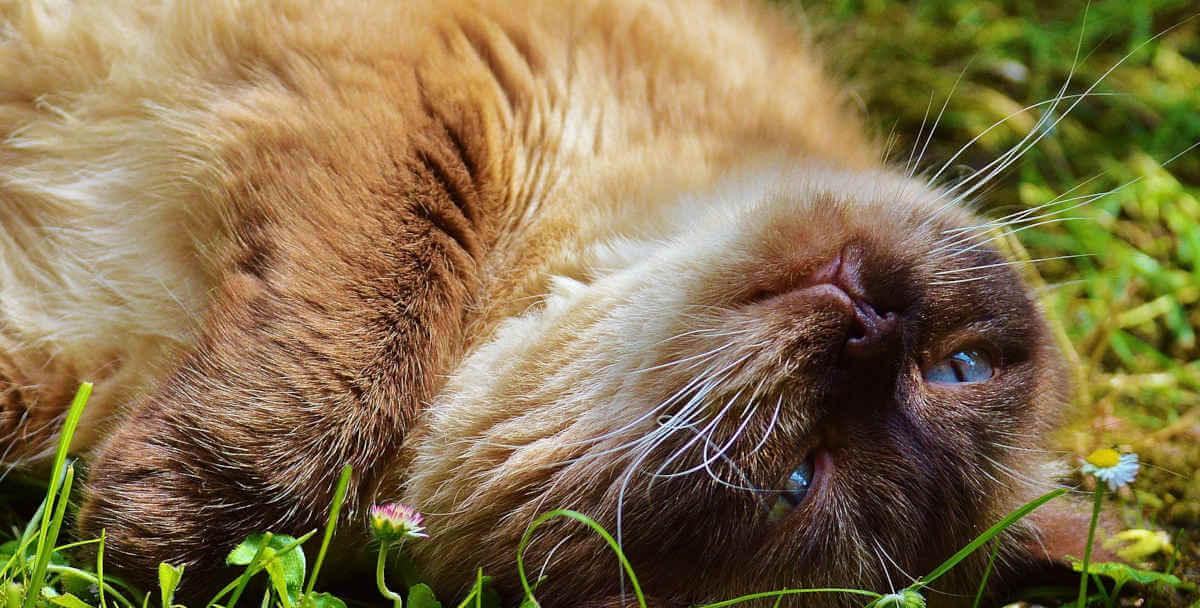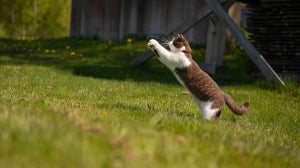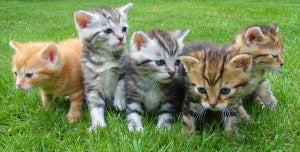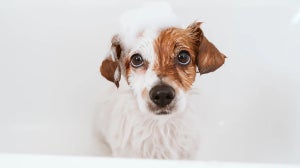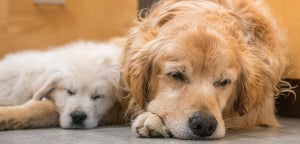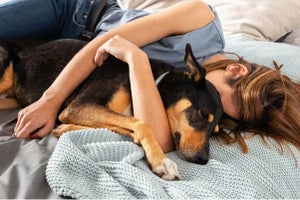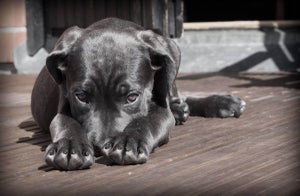
The best way to ensure your cat is eating food that is safe and healthy is to buy cat food designed specifically for them depending on their age and dietary requirements. Naturally, we all like to spoil our pets now and then with an occasional treat. After all, cats like to try out new foods just as we humans do. Unfortunately, there are a lot of foods that we humans eat which are toxic to cats. So, to avoid accidentally harming your cat, it is important to be wary of what is not safe for cats to eat.
Dairy
Cats are lactose intolerant. While kittens can consume their mother’s milk easily enough, they lose the ability to digest lactose as they get older. Therefore, feeding your cat dairy can lead to digestive issues, including pains, vomiting, and diarrhoea.
Raw eggs
Raw eggs should never be fed to your cat. Not only is the risk of salmonella poisoning extremely high, but they also contain a protein which blocks the absorption of some essential nutrients. Most often, this manifests in the form of unhealthy skin and fur.
Chocolate & Caffeine
While cats are more wary about eating chocolate than dogs, some still would like to have a nibble. However, some ingredients in chocolate are toxic to cats and lead to vomiting, diarrhoea and raised body temperature and, in extreme cases, can cause seizures, tremors, and heart arrhythmia. These same substances are found in most caffeine products, too.
Raw fish & meat
Like raw eggs, feeding your cat uncooked fish or meat carries with it a high risk of food poisoning. Not only is there a risk of making your pets ill, but there is also an increased risk of owners contracting food poisoning too! Owners must also be careful to remove any bones, which frequently lead to cracked teeth or choking. Additionally, fish bones are often so fine that cats swallow them, where they can then do internal damage.
Liver
Liver contains a high amount of vitamin A. Inclusion of liver within a nutritionally complete diet causes no issue to an animal. Nevertheless, liver consumption can become problematic if it is consumed separately from a complete diet, especially over long periods of time, as high levels of vitamin A can cause abnormal bone growths and osteoporosis.
Tuna
Most cats love tuna and it can be hard to resist their big wide eyes when you crack open a tin. But too much tuna can be dangerous to cats for the same reason it can be dangerous to humans: it contains high amounts of mercury. If tuna is consumed too regularly (more than once or twice a week), there is an increased risk of mercury poisoning.
Chives, Garlic & Onions
Chives, garlic, and onion are all likely to cause intestinal issues for your cat if consumed, even if only in small doses. Onion is the most damaging because it is capable of breaking down your cat’s red blood cells over time. This can lead to serious health conditions, including anaemia.
What other foods can be dangerous for cats?
Dog food – if your cat eats a small amount of dog food it is unlikely to cause any harm to the animal. Nevertheless, dogs and cats have different dietary requirements, especially when it comes to amino acids. Owners sometimes like to save on food if they own both a cat and a dog, but cat food has a different composition to meet its specific needs, which dog food would not be able to meet; feeding dog food to your cat long-term will cause malnourishment and health problems.
Fat trimmings – causes intestinal upset, including vomiting and diarrhoea.
Grapes and raisins – like with dogs, ingestion of small amounts of grapes or raisins can cause toxicity in cats, and can even be fatal to some cats.
If your cat should sneak a bite of something from this list without you noticing, or you give them an infrequent treat, they are unlikely to come to harm. However, it is important to feed your cat a regular and balanced diet to ensure they grow strong and stay healthy, and you can help by creating good habits which avoid toxic foods and too many treats. If your cat does consume anything on this list and shows any untoward symptoms, see your vet immediately.

